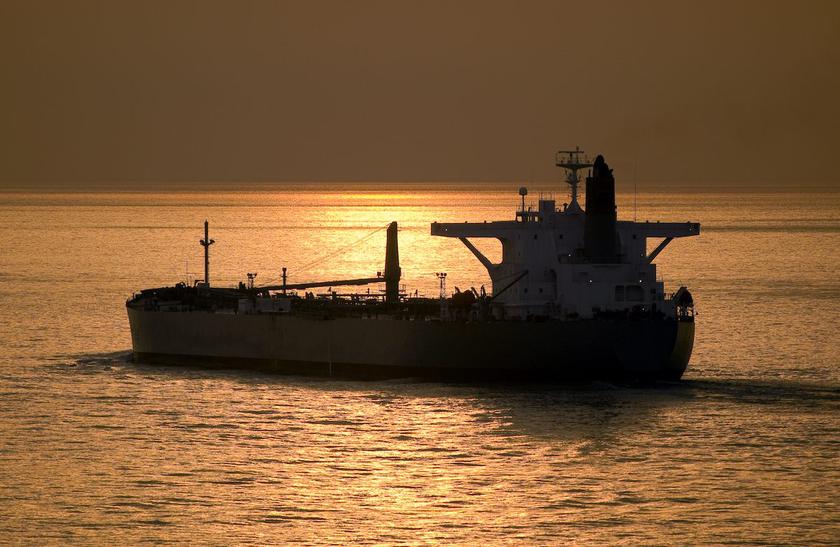
In the context of sanctions imposed on Iran and Russia, a shadow fleet has been formed – a group of old tankers used for illegal oil transportation. Ukrainian contract seafarers are using online networks to exchange information to avoid being hired by these vessels, writes HakaiMagazine.
What is known
Telegram communities of more than 8,000 Ukrainian seafarers have become a platform for exchanging information about problematic vessels, helping to avoid illegal work. After the outbreak of the war in Ukraine and Russia’s involvement in the shadow fleet, the risks for seafarers have increased significantly.
Ukrainian sailor Felix Bondar (name changed) described his experience working on a ship that kept changing its name and disabling its automatic identification system (AIS), a clear sign of illegal activity. The ship was transporting oil to China, and after Russia invaded Ukraine, Felix refused to continue working after learning about the ship’s true destination. This resulted in his release and leaving him in a Chinese port without any means of subsistence.
Telegram posted a video from a smoking area aboard a large ship: torn curtains, broken lamps, and a floor covered with ash and glass. A young Ukrainian deckhand, filming the scene, says: “This is how they drink on our ship. I’m shocked.” When asked by the Telegram administrator about the name of the ship, Felix replied that the ship was constantly changing its name. “I don’t even know what name to tell you,” he writes in Ukrainian. “At first our ship was called the Eagle, but in Venezuela we were the Matador, and then the Shoyo Maru.
The chat room was filled with a chorus of similar messages: stories about dangerously worn out vessels, operators withholding wages, abandoned crew members, and manipulations with AIS. The group has more than 8,000 seafarers who share their stories and ship names whenever possible to gather information about problematic ships, detailing everything from ships with poor quality food to ships where crews are often late with their pay.
Since the beginning of 2023, after a disturbing assignment, Bondar has been looking for information on Telegram for sailors. He discovered that his vessel’s name had been painted over and the AIS was disabled again. After a six-month voyage to smuggle oil to China, the crew was informed that the next operation would begin in Kozmino, Russia. Bondar and the other Ukrainians on board refused to work smuggling Russian oil. The ship’s operator freed them all, leaving them in a Chinese port.
The war in Ukraine is affecting Ukrainian seafarers around the world, causing them depression and anxiety as they try to provide for their families and worry about the safety of their loved ones. Some seafarers report physical and psychological threats they face while working on such vessels. In most cases, these threats come from Russians or companies affiliated with them.
Recruitment for the shadow fleet is carried out through a complex network of agencies and one-day firms. Some Ukrainian agencies are also involved in hiring crews for Russian oil smuggling vessels. These agencies often do not disclose the real working conditions and risks that seafarers may face.
The life of a contract sailor has never been easy. Workers often move from ship to ship, contract to contract, and country to country. But the growth of the shadow fleet, along with Russia’s war in Ukraine, is creating a new kind of risk. A Ukrainian sailor can easily be imprisoned or left somewhere in a port if Russians are involved in the scheme.
The International Maritime Organization (IMO) called on member states to cooperate in the fight against the shadow fleet, and the European Union introduced new sanctions requiring transparency in the sale of oil from tankers owned by Russian companies. However, international regulators still do not pay sufficient attention to the role of cruising agencies that provide labor for the shadow fleet.
Earlier this year, Stella Maris, an English charity organization that promotes the welfare of seafarers, reported an increase in depression and anxiety among Ukrainian seafarers. They are worried about their families, the future of Ukraine, tensions with Russian sailors, and the fear of being drafted into the army after returning home. Russian troops are taking advantage of the temporary shortage of weapons in Ukraine caused by the delay in Western aid, which only worsens the situation for the Ukrainian people, including sailors.
The IMO encourages cooperation between coastal member states to detect suspicious ship-to-ship cargo transfers and AIS manipulation, citing risks to “the safety, welfare and potential criminalization of the crew.” The European Union has called for similar action, while announcing new sanctions that require public disclosure of any tanker sold to a Russian company, including information about the buyer and seller, opening the door for governments to intervene and block the sale if they believe the vessel could end up in the shadow fleet.
So far, international regulators have not commented on the role of cruise agencies in supplying workers to the shadow fleet. Future recommendations may extend the Maritime Labour Convention by calling on member states to ensure that independent cruising agencies operating in their territory obtain the IMO numbers of the vessels they work with before advertising seafarers’ vacancies.
Until the shadowy fleet is brought under control, sailors will continue to whisper over the water and do their best to keep themselves and each other safe.

